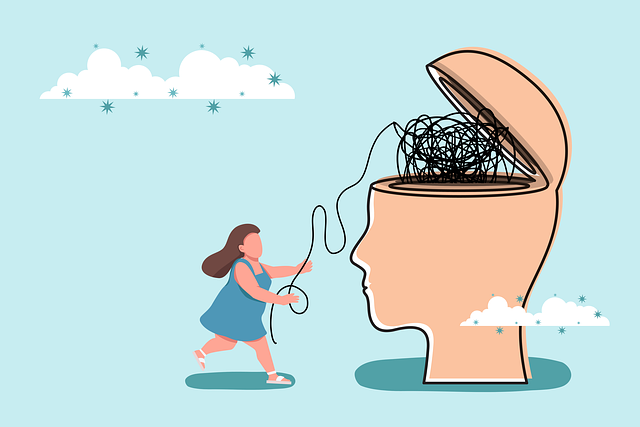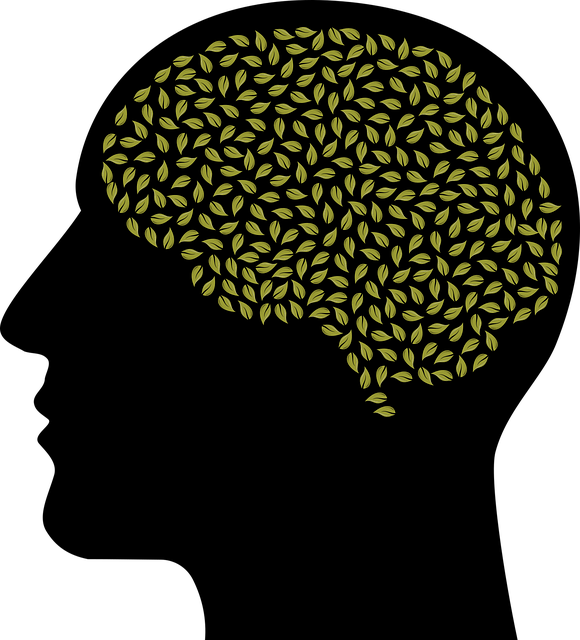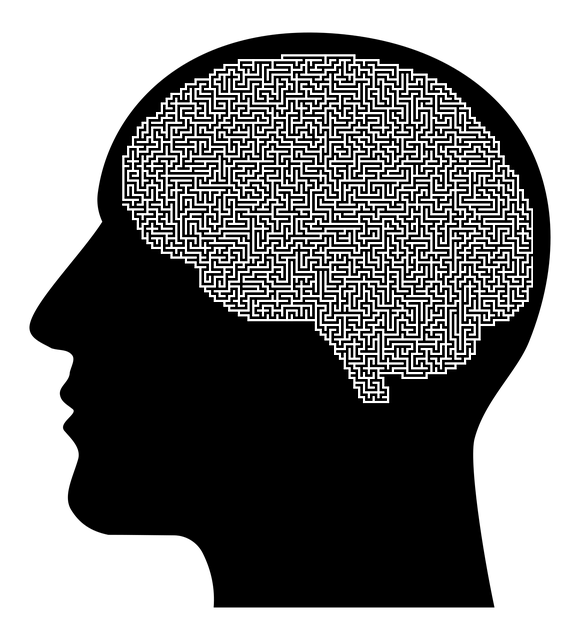Centennial Anxiety Therapy offers modern, evidence-based coaching programs to enhance mental resilience and well-being. Combining traditional therapy with innovative tools like podcasts, they cater to diverse learning styles. Their approach includes personalized action plans, in-depth assessments, and techniques like CBT, Mind Over Matter principles, and conflict resolution. Success is measured through KPIs and qualitative feedback, with continuous improvement strategies focusing on coach burnout prevention and marketing enhancements for better community outreach.
Mental wellness coaching programs are gaining traction as essential tools for promoting holistic well-being. In today’s fast-paced world, navigating stress and anxiety has become a universal challenge. This article explores the development of effective mental wellness coaching programs, focusing on techniques like Centennial Anxiety Therapy. We’ll delve into designing personalized action plans, incorporating evidence-based practices, and measuring success to ensure optimal client outcomes. Understanding these strategies is crucial for coaches aiming to make a significant impact in their clients’ lives.
- Understanding the Need for Mental Wellness Coaching Programs
- Designing Effective Centennial Anxiety Therapy Techniques
- Incorporating Evidence-Based Practices in Coaching
- Creating Personalized Action Plans for Clients
- Measuring Success and Continuous Improvement Strategies
Understanding the Need for Mental Wellness Coaching Programs

In today’s fast-paced and often stressful world, mental wellness has become a paramount concern for individuals across various demographics. The rise in mental health challenges, such as anxiety disorders, underscores the pressing need for accessible and effective support systems. Centennial Anxiety Therapy recognizes this growing demand and addresses it through innovative coaching programs tailored to enhance mental resilience and overall well-being.
These programs go beyond traditional therapy by offering practical tools and strategies for managing stress, improving social skills, and fostering better coping mechanisms. Incorporating elements like Social Skills Training and Crisis Intervention Guidance, these initiatives equip individuals with the knowledge and confidence needed to navigate life’s challenges head-on. Additionally, the Mental Wellness Podcast Series Production serves as a valuable resource, providing accessible and engaging content that promotes mental health awareness and offers guidance for those seeking support.
Designing Effective Centennial Anxiety Therapy Techniques

In designing effective Centennial Anxiety Therapy techniques, mental wellness coaches must first understand the unique challenges and triggers that contribute to anxiety in today’s fast-paced world. This involves incorporating modern tools and methodologies into traditional therapy practices. Mental health awareness has grown exponentially, allowing for a more nuanced approach to addressing specific issues like anxiety. Coaches can leverage this knowledge by tailoring sessions to individual needs, using evidence-based strategies such as cognitive behavioral therapy (CBT) alongside innovative techniques like mindfulness meditation and exposure therapy.
The development of Centennial Anxiety Therapy should also consider the power of storytelling and multimedia elements. Producing engaging mental wellness podcast series can complement in-person coaching, providing accessible and relatable content that reinforces therapeutic concepts. By combining these strategies, mental wellness coaches can create dynamic and effective programs that cater to diverse learning styles, ultimately enhancing the overall mental wellness of their clients.
Incorporating Evidence-Based Practices in Coaching

Incorporating evidence-based practices is pivotal for the development and effectiveness of mental wellness coaching programs. These practices are backed by extensive research and have been proven to significantly improve clients’ mental health outcomes, especially in addressing prevalent issues like Centennial Anxiety Therapy. One such practice is Mind Over Matter principles, which empower individuals to reframe negative thoughts and cultivate resilience. By teaching clients to recognize and challenge unhelpful thinking patterns, coaches can help them develop a more positive mindset, enhancing their overall well-being.
Additionally, integrating conflict resolution techniques into coaching sessions equips individuals with essential skills to navigate interpersonal challenges. These techniques foster open communication, empathy, and problem-solving strategies, enabling clients to better manage relationships and reduce stress. Promoting Positive Thinking is another key component, as it encourages clients to focus on optimism, gratitude, and self-efficacy. This not only boosts mood but also strengthens their ability to cope with life’s demands and setbacks.
Creating Personalized Action Plans for Clients

In developing mental wellness coaching programs, one key aspect that sets effective coaches apart is their ability to create personalized action plans tailored to each client’s unique needs and goals. This involves a deep understanding of the client’s current emotional state, triggers, and aspirations. Coaches at Centennial Anxiety Therapy employ this strategy by starting with an in-depth assessment process. They explore clients’ daily routines, relationships, and past experiences to identify patterns contributing to their mental health challenges.
Using evidence-based Emotional Well-being Promotion Techniques, coaches then collaborate with clients to set measurable objectives. This partnership encourages clients to take ownership of their journey while incorporating valuable Communication Strategies. By integrating Mind Over Matter Principles, clients are empowered to challenge negative thought patterns and develop healthier coping mechanisms, fostering a more positive and resilient mindset.
Measuring Success and Continuous Improvement Strategies

Measuring success is a crucial aspect of any mental wellness coaching program. It involves tracking key performance indicators (KPIs) that align with the program’s objectives, such as participant satisfaction, engagement levels, and improvements in mental health symptoms. For instance, a Centennial Anxiety Therapy program could assess success by monitoring reductions in anxiety scores through standardized assessments. Moreover, qualitative feedback from participants can provide valuable insights into their experiences and the program’s overall effectiveness.
Continuous improvement strategies are integral to ensuring long-term success. These involve regularly reviewing program data, identifying areas for enhancement, and implementing evidence-based changes. For example, if a Community Outreach Program Implementation reveals low attendance rates, the coaching team could focus on enhancing marketing efforts or developing more flexible scheduling options to foster better participation. Similarly, by recognizing signs of burnout among coaches (a critical aspect of Inner Strength Development), programs can introduce support mechanisms and preventive measures to maintain a healthy work environment, thereby reducing turnover rates and ensuring sustained high-quality services, including for Burnout Prevention.
Mental wellness coaching programs are a vital tool in addressing contemporary challenges, especially with the rise of issues like centennial anxiety. By incorporating evidence-based practices, such as tailored action plans and effective therapy techniques, these programs offer a comprehensive approach to client success. As we navigate an increasingly complex world, the development and refinement of these strategies become essential, enabling coaches to foster positive mental health outcomes and enhance overall well-being.














